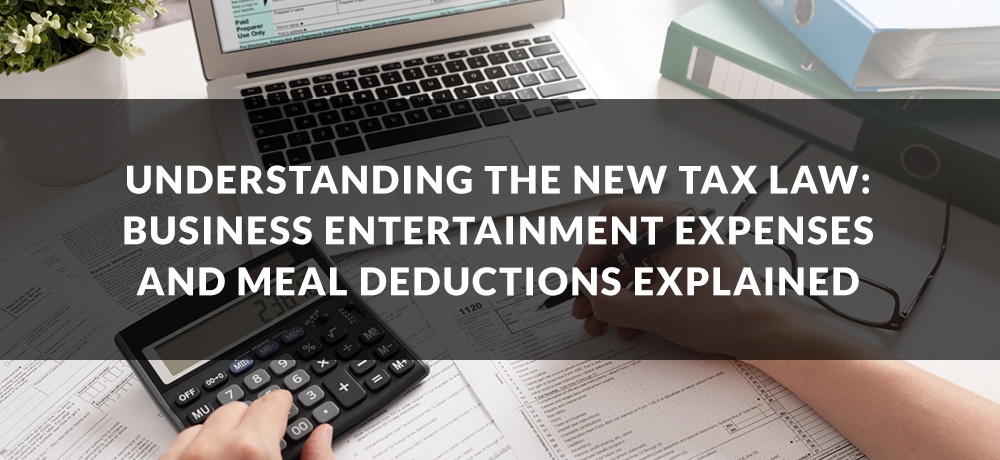Understanding the New Tax Law: Business Entertainment Expenses and Meal Deductions Explained

Dear Client:
Many businesses consider the occasional wining and dining of customers and clients just to stay in touch with them to be a necessary cost of doing business. The same goes for taking business associates or even employees out to lunch once in a while after an especially tough assignment has been completed successfully. It is easy to think of these entertainment costs as deductible business expenses. However, due to a recent change in the tax law, many of those expenses may not be deductible.
Entertainment Expense Deduction Limited
Congress has eliminated the deduction for most entertainment expenses paid or incurred after December 31, 2017. Entertainment includes fees or dues associated with any social, athletic, sporting club or organization. However, your company may still be able to deduct the cost of meals as a business expense if detailed substantiation and recordkeeping requirements are met.
Business Meals
As a general rule, your company can deduct 50 percent of the cost of meals as a business expense if the following requirements are met:
- the expense must be ordinary and necessary and paid in carrying on a trade or business;
- the expense may not be lavish or extravagant;
- the taxpayer or an employee must be present when the food or beverages are furnished;
- food and beverages must be provided to the taxpayer or a business associate; and
- if the food and beverages are provided during or at an entertainment activity, separate invoicing is required.
The food or beverages must be provided to a person with whom the taxpayer could reasonably expect to engage or deal in the active conduct of the taxpayer's trade or business such as the taxpayer's customer, client, supplier, employee, agent, partner, or professional adviser, whether established or prospective. This definition is applied to employer-provided food or beverage expenses by considering employees as a type of business associate as well as to the deduction for expenses for meals provided by a taxpayer to both employees and non-employee business associates at the same event.
Meals provided to employees after 2025. Certain employer-provided meal expenses paid or incurred after December 31, 2025, are prohibited. Beginning in 2026, no deduction is allowed for amounts that an employer pays or incurs for:
-
Meals that are excludable from an employee’s income because they are provided on the employer’s business premises for the convenience of the employer; or
-
Food, beverage, and eating facility expenses for facilities located at an employer’s business that provide meals that are considered a de minimis fringe benefit.
Invoicing. Food and beverage expenses deductibility and treatment depends on how invoiced. Food and beverage expenses include delivery fees, tips, and sale tax. For food or beverages provided at or during an entertainment activity, the amount charged for food or beverages on a bill, invoice, or receipt must reflect the venue's usual selling cost for those items if they were to be purchased separately from the entertainment or must approximate the reasonable value of those items. However, if the invoices are not stated separately and no allocation can be made, the entire amount is nondeductible.
Contact Us
Please call our office and we can discuss how your company's typical meal and entertainment expenses fare under the new deduction rules and suggest changes to your meal and entertainment policies. We can also show you how to comply with the recordkeeping requirements.
Sincerely,